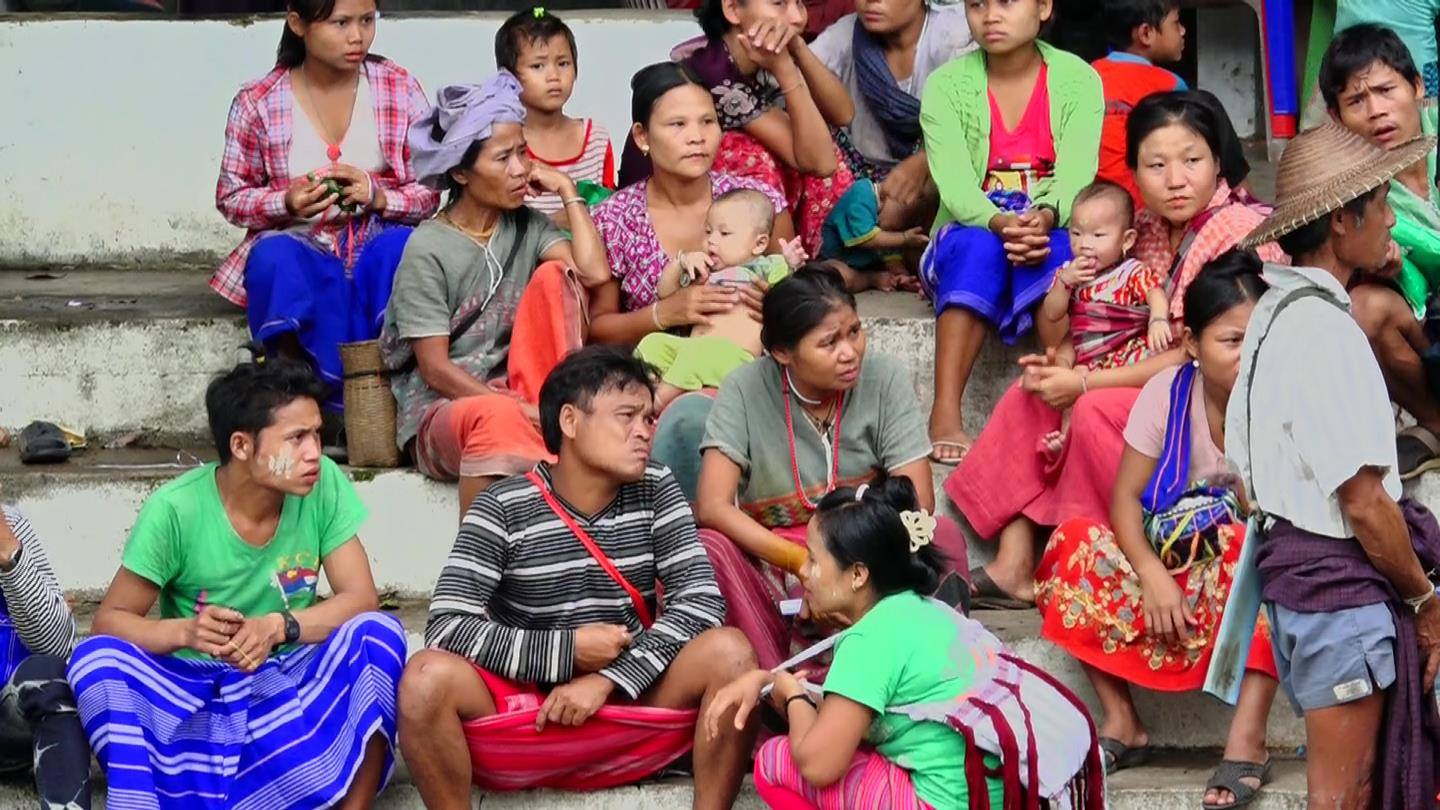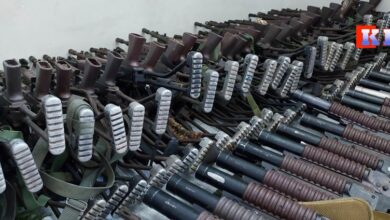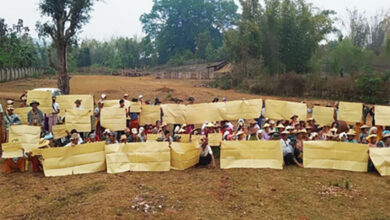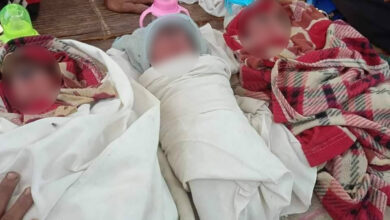Myaing Gyi Ngu Displaced People Face Food Shortages, Lack of Medicine, as Support and Donations Stop…

Trucks delivering food assistance to the displaced people at the temporary camps in Myaing Gyi Ngu are now a rare sight. Camp warehouses are almost empty as the more than 3,000 displaced villagers from the Mae Tha Waw area are still unable to return to their homes.
The fighting that broke out in September 2016 between the breakaway Democratic Karen Buddhist Army and the Burma Army and its militia, the Border Guard Force (BGF) forced more than 6,000 villagers in the Mae Tha Waw area out of their homes. Some of the displaced villagers tried to return, but the majority stayed in the temporary camps unable to go back to their village because of the conflict and fear of landmines.
Displaced villagers living in the Myaing Gyi Ngu temporary shelter, mainly depend on food donations from non-government organizations, civil society organizations and some government departments.
After five months, the displaced people are now receiving less food and services as donations are decreasing for the people living in the temporary shelters.
Naw Tin Hla, a Food Warehouse manager at the displaced camp told Karen News that the food stock is getting less and less. Naw Tin Hla opened the warehouse and pointed to some newly donated food stocks and said.
“We now have this much stock, because it just came in today. If it hadn’t come, we wouldn’t have this much food left. It came in this morning.”
Naw Tin Hla said that as the time pass by, the food donations have decreased.
“When we first arrived here, there were many donors, but now [the donations] do not come once a week or once in 15 days or even once in three months – we have had only one in in 4 months.”
The displaced villagers have noticed that it is not only food donations that have been reduced, but other basic services like health care have also dropped off at the temporary shelters.
Saw Kyaw Tako, a displaced villager from Klaw Day village told Karen News that now people can’t get basic healthcare service like they had in the beginning.
“There was a healthcare outpost here. Some health workers stayed there. When we suffered from minor illnesses, we sought treatment there. Now there is no more health worker, so we have to go to Myaing Gyi Ngu [hospital]. We gather the sick people and send them there. When the health workers was here, we didn’t need to go there. We got treated here.”
For most of the villagers, returning to their village is uncertain as the armed conflict in the areas has not stopped. Those that did return did so in fear of landmines, as both armed groups landmined the area resulting in a number of fatal casualties – one villager died, one lost a leg and several livestock were killed.
While talk in Burma is currently centered around the benefits of ‘peace’, the Mae Tha Waw displaced villagers are caught in an armed conflict with no end. All they want to do is go home.




